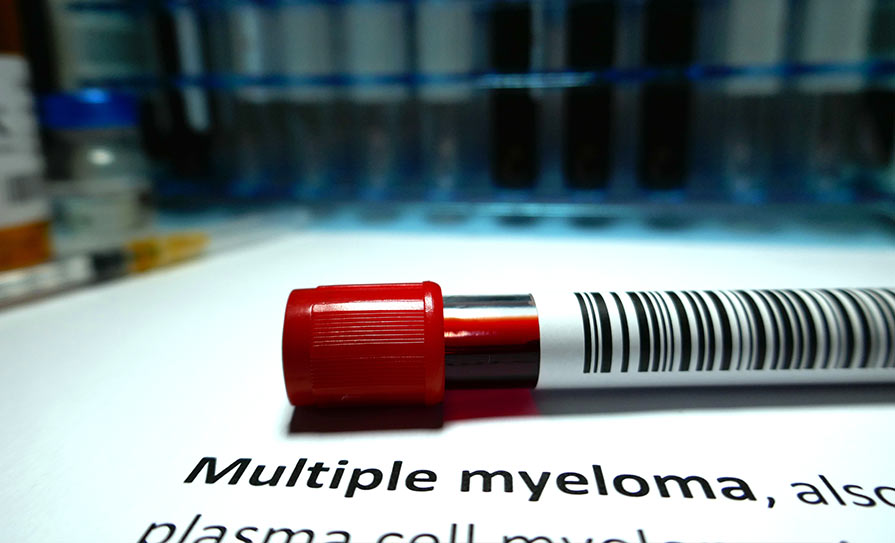
The use of autologous stem cell transplant (ASCT) early in the course of treatment showed a significant 21.4-month gain in median PFS in younger, newly-diagnosed multiple myeloma patients compared to patients who received chemotherapy without an initial transplant, according to new research presented at the ASCO 2022 Annual Meeting. No OS benefit has yet been seen using ASCT early, compared to keeping it in reserve.
In the DETERMINATION trial, 722 patients between the ages of 18 and 65 years were randomly assigned to the two treatment arms at 46 study locations in the US: 357 to the non-transplant arm and 365 to the ASCT arm. Patients were assigned to an initial treatment with melphalan to aid in collecting stem cells, then ASCT, followed by two cycles of a triplet-combination therapy known as RVd – lenalidomide, bortezomib, and dexamethasone – versus three cycles of RVd, followed by stem cell mobilisation (stem cells collected for possible future use if the disease progresses), and then five more cycles of RVd. Both arms received lenalidomide maintenance until progression or intolerable drug toxicity.
After a median follow-up of 76 months, median PFS was 46.2 months in the non-transplant arm vs 67.6 months in the ASCT arm at this timepoint.
“The findings from DETERMINATION will have importance for real-world practice and the treatment of younger patients with multiple myeloma by informing providers and patients alike of the important considerations to be made in selecting treatment options in the newly diagnosed, transplant-eligible setting, as well as important implications for future research,” said lead author Dr Paul G Richardson, Clinical Programme Leader and Director of Clinical Research, Jerome Lipper Multiple Myeloma Center at Dana-Farber Cancer Institute in Boston, US.
“The prognosis for patients with multiple myeloma has improved substantially over the last 10 years. These findings add to an overall positive trend for patients with multiple myeloma and provide information relevant to the optimal timing of stem cell transplant in this disease,” said ASCO Chief Medical Officer and Executive Vice President Prof Julie R Gralow.





Leave a Reply
You must be logged in to post a comment.